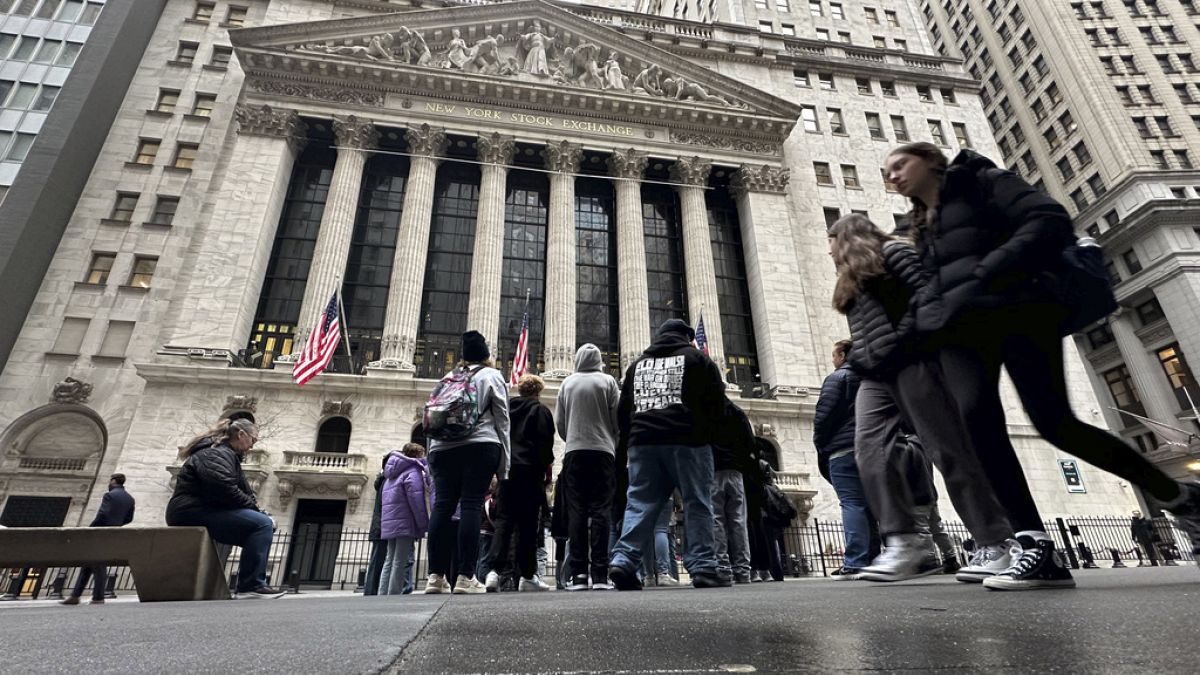Global stock markets remained on an upbeat trajectory in March, with the European stock markets particularly robust in the first quarter. Banking and Energy stocks shone, outpacing the technology sector in March.
Major European indices notched the fifth consecutive monthly gains, refreshing their record-highs in March, thanks to the ongoing optimism about potential rate cuts by central banks this year on the back of cooling inflation.
The Euro Stoxx 500 was the strongest performer in Europe so far in 2024, up 12.4% for the first quarter. The DAX rose 10.3%, the CAC 40 was up 8.8%, and the FTSE 100 advanced 2.6% during the same period. European stock markets are closed for Good Friday and Easter Monday, with reopening scheduled for Tuesday next week.
Some European drug maker stocks outperformed this week, fuelled by positive news from Wall Street as the US pharmaceutical company, Merck, saw a 20% increase after the Food and Drug Administration approved its new drug for lung disease.
AstraZeneca's shares closed 5% higher for the week, and GSK's stocks were up 4.1%. However, Novo Nordisk's stocks lost steam, falling 2.2% after hitting an all-time high earlier in March. On a monthly performance, the energy stocks showed particular strength due to the rise in oil prices. Both Shell and BP's shares were up by more than 6%, while European banks also performed well, with HSBC's shares rising by 3.3%, Lloyds' stocks advancing 18.3%, and Barclays's stocks rising 11.3%. While the sector performance mostly mirrored movements on Wall Street, the improvement in the European macroeconomic landscape may have influenced market sentiment.
The Eurozone's inflation eased to 2.6% year-on-year in February, marking the lowest level in three months and nearing the European Central Bank (ECB)'s target of 2%. In the UK, the February Consumer Price Index (CPI) also declined by more than anticipated, printing at 3.4%, the lowest since September 2021. These economic indicators have strengthened expectations for both the ECB and the Bank of England (BOE) to consider interest rate cuts in June, if not earlier in the year.
The UK officially entered a technical recession, as confirmed by the final reading of the fourth-quarter GDP, which decreased by 0.3% month-on-month, following a 0.1% decline in the third quarter. In economic terms, negative growth often prompts the Bank of England (BOE) to lean towards monetary policy loosening measures. Thus, what may be considered bad news for the economy can paradoxically be perceived as good news for those expecting monetary stimulus from the BOE.
Wall Street
The US stock markets maintained their momentum, reaching record highs fuelled by the persistent enthusiasm surrounding artificial intelligence (AI), while energy stocks thrived amidst a resurgence in oil prices during the first quarter. The S&P 500 surged by 10.2% over the first three months of the year, marking its strongest first-quarter performance since 2019. The Dow Jones Industrial Average experienced a 5.6% increase, while the tech-heavy Nasdaq index rose by 9.1%.
Notably, some of the Magnificent Seven tech stocks lost momentum in the past week, with Microsoft, Apple, and Nvidia all closing in the red. These major US tech shares exhibited mixed performance for the quarter, with Nvidia and Meta Platforms leading gains, up by 83% and 38% respectively. Conversely, Apple and Tesla significantly underperformed, experiencing declines of 11.2% and 28.5% respectively in the first quarter.
The remaining stocks in this group, including Microsoft, Alphabet, and Amazon, saw increases of 12%, 7.8%, and 19% respectively. The divergent movements among these stocks suggest that investors favoured AI-related stocks while divesting those encountering growth constraints. Other notable AI stocks such as AMD and Super Micro Computer saw their shares rise by 20% and 242% respectively in the first quarter.
Another observed trend is that the energy sector resumed as frontrunner in the S&P 500, reflecting a shift in funds towards cyclical sectors due to an improved macroeconomic environment. With the US economy demonstrating a promising trajectory towards a soft landing, the Federal Reserve may be ready for a rate cut in the second half of the year. The energy stocks were the best performers in the 11 sectors S&P 500 in March, up 9.2%. Major components of the sector, such as Exxon Mobil’s shares rose by 11.7% and Chevron's stocks saw an increase of 3.8%.
The US markets will also remain closed on Good Friday and will reopen on Monday. However, there is potential for volatility in the markets next week as the Federal Reserve's preferred inflation gauge, the Personal Consumption Expenditure (PCE) Index, is scheduled for release later today, coinciding with the closure of most major stock exchanges.
Asian Markets
The most notable divergent moves in the Asian market are soaring Japanese stock markets and a subdued Chinese market sentiment. The Japanese benchmark, the Nikkei 225, gained 20% in the first quarter, attributed to the government’s supportive policy and positive economic development. In contrast, Chinese stock markets returned to sluggish movements in March following a rebound in the previous month. China's ongoing housing market crisis continued to dampen investment sentiment, while domestic demand remained lacklustre. The benchmark index for the Hong Kong stock market, the Hang Seng Index, remained flat in March and registered a decline of 2.5% year-to-date. This makes it the only major world index to post negative performance in 2024.
Turning to the southern hemisphere, the Australian stock markets continued their upward trajectory, marking the fifth consecutive month of gains in March and reaching a record high of just above 7,900. The consumer staple stocks led the charge, with companies like Wesfarmers and Woolworths recording weekly gains of 3.1% and 4.3% respectively. Australia's retail sales saw a 0.3% increase in February, partially due to the boost in consumer spending by Taylor Swift's concert.



